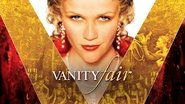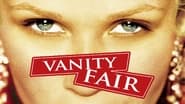Alex Deleon
Alex Deleon, London Film Festival, November 1, 2004 Today's films: (1) "Vanity Fair" with Rees Witherspoon as the social climbing "mountaineer", Becky Sharp with seamless English accent, in Napoleonic era England, via Thackeray – A lush high budget production by Mira Nair (of "Monsoon wedding") – fantastic costumes, makeup, sets, horses, rich colour photography, good acting all around from a full cast of English stalwarts, Bob Hoskins, Gabriel Byrne, nearly the entire British "a List", and – a crashing bore! – Why? – Good question.For one thing the ponderous musical score which hardly ever lets up, drowns out half of the dialog and generally drenches the film with superfluous philharmonic interpretation, for another, there are so many indistinguishable characters that it's hard to keep track of Who's on First – after a while I just gave up – and finally, you're really never sure whether to sympathize with, or be disgusted with, the central character, Becky. Not a case, incidentally, of necessary subtle shading of a complex personality but, as I saw it at least, heavy-handed manipulation of the star's natural charisma. Ms. Witherspoon, so lovable and full of girl-next-door freshness in earlier films such as "Pleasantville" and others, has now matured into a 29 year old actress capable of wielding wickedness, or whatever, but there is just something not quite right here. La Witherspoon, with her strange concave facial structure and prominent chin, is both beautiful and creepy at the same time, as if something akin to hardening of the facial arteries has suddenly set in pre-maturely. She is the absolute center of the film, and the entire story revolves about her in every way, in a bravura role which may well bring Oscar nominations her way come March, 2005, but there is something basically out of sync in this characterization … possibly because her style of rebelliousness is a little too American underneath the flawless accent. There may also be a reverse Gunga Din effect operating here, Director Nair's inherently Indian sensibilities failing to jive completely with Thackeray's essential Englishness. It may be noted in passing, that among the few scenes which actually do come to life, are one or two Bollywood type numbers in the bits of the film which are actually set in India.
MBunge
Great old books are quite a challenge to bring to the big screen because they were simply written on a different level than today's popular fiction. Vanity Fair is a great example of that.Becky Sharp (Reese Witherspoon) is a young woman from an impoverished family who lost her mother when she was just a child. After slaving away many years at a boarding school, she finally gets a job as governess to one of those pinched English families in the early 19th century that had neither enough nobility nor enough money to be thoroughly upper class. From there Becky latches on to a rich dowager, before marrying the dowager's soldier nephew. Meanwhile, Becky's best friend Amelia (Romola Garai) is hopelessly in love with an arrogant jerk who cares little for her but whose father cares a great deal for Amelia's family fortune. When that fortune disappears, the father forbids the marriage to Amelia but the son goes through with it anyway, for no apparent reason. Becky and Amelia follow their husbands to Europe as the men prepare to war against Napoleon, where Becky becomes the toast of the night life of the British expeditionary force. The war ends with Amelia's husband dead and Becky and her husband trying to make a name for themselves in London society, racking up huge debts in doing so. That brings in the Marquis of Steyne (Gabriel Byrne), who sets his sights on Becky and tempts her with everything she's ever desired from life. But getting everything she ever wanted turns out to be far more than Becky can handle.There's a lot more than that in the film (and even more in the book), but that's the major problem with Vanity Fair. There's just too much story in too little time, leaving none of it with a chance to breathe. Take Reese Witherspoon's performance, for example. Her Becky is tough and determined, but the story is so busy moving her from place to place that we get no sense of her ambition and lust for status. She's called a "mountaineer" of social climbing, but most of her advancement in the first half of the film are due more to chance and circumstance than any effort of Becky's. By the time her more grasping nature has a chance to unfold on screen, it seems out of place and forced. Or take Amelia's beloved George (Jonathan Rhys Meyers). He's such a jackass it's hard to understand Amelia's devotion and then George makes decisions that are completely counter to his jackass nature without explanation. In a book, you can find the verbiage to justify or cover up stuff like that which makes little to no sense. But on screen, you just get what you can see.This is a common problem with books like Vanity Fair, which may have been pop culture in their day but played to audiences that were much smaller but much more literate than we have today. While a contemporary novel might be a cheeseburger, good but aimed at the common taste buds, Vanity Fair is more like a steak prepared by a French chef, tasty but perhaps too expensive or too much of a bother for many.The film does look great and the actors uniformly do a fine job. The best thing about the movie, however, is how it crystalizes the social and economic prison people found themselves locked inside in the early 19th century. If you didn't have money and status, your life would be nasty, brutish and usually short. I f you had money but not status, you found yourself on the outside of acceptable society trying desperately to get in. If you had status but no money, you found yourself a helpless pawn in the social gameplaying of those had money. And whatever it is that you happened to lack, there were only a very few and limited ways to try and fix that deficiency.As a work of entertainment, you're probably better off reading the book. But as an example of the structure of British society at a particular point in time, such as a teacher might use to give students a clearer understanding of those realities, Vanity Fair is worth your while.
johnemiller132
i have never seen becky sharp, as a character, "nailed" by any actress. reese witherspoon, if you have never read the book, does an adequate job, but does'nt quite pull it off.the screenplay is the thing that lets this piece down the most though.a look at the unused scenes suggest that we could have had a more powerful film.perhaps the thing to have done would be to focus on a part of the novel, the action spans 20/30 years. the story does become a little staccato.there are a wealth of fine actors in the production, james purefoy brings a sympathetic air to his character col. rawden crawley.
Greg Mullins
I didn't read the book, though it was one of the Director's favorites from her high school days. Which means her departures weren't ignorant but intentional. Many of the movies in my small library are some of the best of film literature that we have, so there is a great appreciation for it on my part. But I don't think it impossible to make a good movie that differs from the book. Apparently this one, like so many - does.The movie is sumptuous, and beautifully so. It is, as I'm sure others have said, a feast for the eyes. I found it to be most excellent in every way, including both Reese Witherspoon as the lead, and the events coming full circle to a happy ending. If you enjoy the best of Merchant-Ivory, Jane Austen, Emily Bronte, or any other well made period piece - I can't imagine you not enjoying this. It is well worth the watching.Since the entire production crew was a gaggle of women (I say that lovingly), there are visible elements of underlying political and social commentary favoring the feminine. Which is simply an observation, diverging from Mira Nair's small denial to the contrary. It was well written, well acted, well shot and well directed. I've enjoyed it immensely, several times, and will several more . . .









